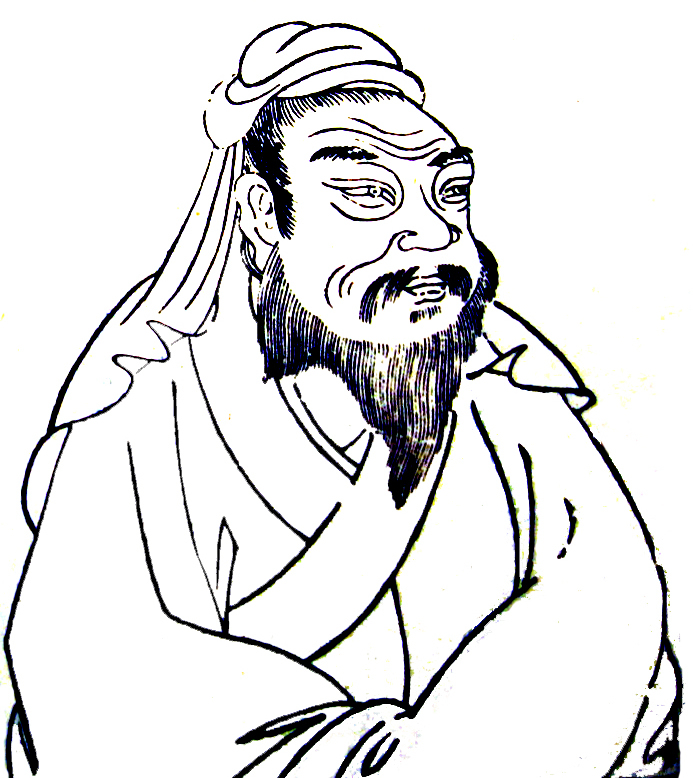In Chinese tradition King Wen (the Accomplished), King Wu (the Martial), and the Duke of Zhou are revered as the wise founding fathers of the Zhou (Chou) dynasty (c. 1122–256 b.c.e.) and their era is considered a the golden age.
King Wen prepared the way; King Wu overthrew the Shang dynasty but died shortly after, leaving his young son King Cheng (Ch’eng) under the care of his uncle, the Duke of Zhou, as regent.
Soon after this event three other brothers of King Wu, who had been sent to govern the former Shang territories in the east, and the Shang prince who had been set up as nominal ruler of the Shang people, joined in rebellion. After two years of warfare the Duke of Zhou and his brother the Duke of Shao defeated the rebels.
  |
The Shang prince was killed, the Shang capital, Yin, was leveled, and another Shang prince was set up to rule another fief called Song (Sung) further east. The rebel Zhou princes were either killed or exiled. Thus ended the first crisis of the new dynasty.
The Duke of Zhou then pressed further east and brought all peoples to the coast under Zhou rule. The Zhou territory was larger than that of modern France. To consolidate the conquests the duke sent loyal relatives to establish strongholds in strategic locations and set up a second capital at Luoyang (Loyang), strategically located at the junction of the Luo (Lo) and Yellow Rivers.
During the early Zhou era numerous walled cities were built, governed by relatives and supporters of the new dynasty, who gradually established control over the population.
Their territories were called guo (kuo). The king ruled directly over the largest territory in the center of the political order, called Zhungguo (Chung-kuo) or the “central state,” which came to mean “China” and known to the West as the Middle Kingdom.
The new rulers were given titles of rank, translated as duke (reserved for sons and brothers of the king), marquis, count, viscount, and baron. Together the nobles were referred to as “the various marquises.”
Most of the nobles were related to the royal house either by blood or by marriage; they looked to the king as head of their vast extended family and the Zhou clan as their common ancestors. Many common features between these Zhou institutions and European medieval feudal institutions have led historians to call the early Zhou polity feudal.
The Duke of Zhou is also credited with creating the well-field system that equitably distributed farmland to cultivators; eight families grouped together farmed plots for themselves and together farmed the ninth one for their lord.
The Duke of Zhou explained to the Shang people that the change of dynasties was the will of heaven, which punished the last Shang king for his wickedness and rewarded the house of Zhou for its virtue.
He also lectured his nephew that the concept of “Mandate of Heaven” was a double-edged sword and could be cut when the personal and political conduct of the new rulers did not measure up to heaven’s expectations. After a seven-year regency, and having accomplished his mission, he returned power to his nephew and retired to his own fief called Lu in eastern Shandong (Shantung).
